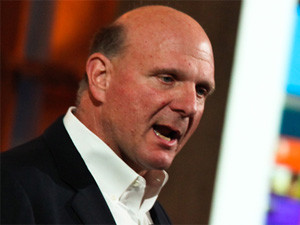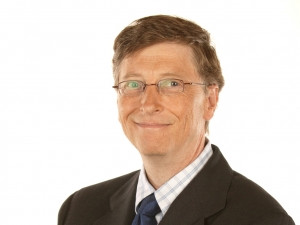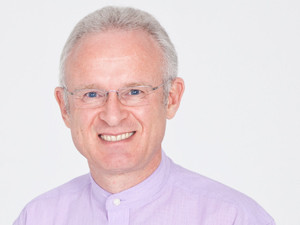
With Steve Ballmer's pending departure from Microsoft, the software colossus has an opportunity to hire someone who will reinvent it and help get its mojo back.
Although Ballmer kept the company ticking over nicely, he failed to aggressively compete in a market that has shifted dramatically in the past few years. Ballmer took the helm in 2000 and leaves as Microsoft is in the midst of transforming itself.
Ballmer's surprise resignation was announced on Friday, leading to a 7.29% jump in the stock, to $34.75. In the past 10 years, the share has mostly hovered between $26 and $30, although it plummeted briefly to the mid-teens in 2009.
Hunting for new blood
Microsoft's second ever CEO - after founder Bill Gates - will leave in the next year after his successor has been chosen. "There is never a perfect time for this type of transition, but now is the right time," Ballmer said in a statement.
"We have embarked on a new strategy with a new organisation and we have an amazing senior leadership team. My original thoughts on timing would have had my retirement happen in the middle of our company's transformation to a devices and services company. We need a CEO who will be here longer term for this new direction."

While a process is under way to find a new CEO, market commentators say the firm needs someone with drive who can take Microsoft forward after Ballmer missed several opportunities. A committee headed by lead independent director John Thompson is working with executive recruitment company Heidrick & Struggles to find a new CEO.
"The board is committed to the effective transformation of Microsoft to a successful devices and services company," Thompson says. "As this work continues, we are focused on selecting a new CEO to work with the company's senior leadership team to chart the company's course and execute on it in a highly competitive industry."
"As a member of the succession planning committee, I'll work closely with the other members of the board to identify a great new CEO," says Gates. "We're fortunate to have Steve in his role until the new CEO assumes these duties."
Change needed

Microsoft's problem is that it is still married to its legacy, and its traditional operating system and Office suite remain at its core, comments Arthur Goldstuck, MD of World Wide Worx.
Microsoft needs to have a more aggressive tablet strategy and cannot afford to do Windows RT "kind of nonsense". The Surface tablet has failed to gain traction.
The company, founded in 1975, must innovate at the core and have a vision to move the market on, says Goldstuck. What is needed is a dramatic new vision.
Microsoft needs to rediscover its mojo and the key question is whether a new head can regain market enthusiasm, says Vestact CEO Paul Theron. He notes it is a cheap share when compared to Google, as its price-to-earnings ratio is 13.5, while Google is at 27.
Stable, but boring
Goldstuck says the fact that the share price jumped shows investors are desperate for new thinking at Microsoft, which was part of the reason that Ballmer had to move on.
Potential contenders, as compiled by Reuters
Tony Bates: Came to Microsoft two years ago as CEO of the acquired Skype and was recently elevated to lead Microsoft's business development and overall strategy.
Terry Myerson: The executive in charge of operating systems, which is still the heart of Microsoft, ranging across PCs, tablets, phones and the Xbox game console.
Satya Nadella: Heads Microsoft's cloud and enterprise group, which is coming to the fore as the company struggles to catch up in online and mobile computing.
Kevin Turner: As COO for the last eight years, the former Wal-Mart Stores executive leads Microsoft's enormous sales organisation, but is generally considered to lack the technology credibility to be CEO.
Steven Sinofsky: The former head of the Windows unit was widely tipped as a potential Microsoft CEO until his abrupt departure in November. His reputation has taken a hit since then with the dismal sales of the Surface tablet he launched and the lukewarm reception of Windows 8.
Vic Gundotra: The high-flying Google engineer, key to that company's mobile phone and social initiatives, is a former Microsoft executive who could be tempted to return.
Reed Hastings: The CEO of Netflix is a rising Silicon Valley star and has intimate knowledge of Microsoft's business after several years on its board, until his departure last year.
Paul Maritz: One of the key powers in the early days of Windows, Maritz left in 2000 and eventually ran virtualisation firm VMware until last year. Talk occasionally surfaces that he could return to Microsoft, but he has never indicated any interest publicly.
Bill Gates: The co-founder of Microsoft is still chairman, but has focused his day-to-day efforts on philanthropy since 2008 when he vacated his office on campus. People close to him say he is not considering a return to the CEO position.
Microsoft has healthy reserves of $77 billion, and turned over $20 billion in the last quarter, notes Goldstuck. He says the only company in the world that can afford to buy it is Apple.
While Ballmer managed it competently as a business, it is shown up when compared to its peers, such as Apple and Google, says Goldstuck. Its cash reserves and cash equivalents should be deployed effectively, and Ballmer failed to leverage its war chest, he adds.
Goldstuck says Microsoft's performance has not been bad, although the stock price has been mostly stable for the past decade. "It's been a very boring share to watch."
Theron says it is easy to be critical of Microsoft, as new entrants like Facebook and Google have captured attraction. He points out that Microsoft's shares have been down 40% under Ballmer's watch.
The irony of the 7.29% leap after his resignation was announced is that Ballmer has added $1 billion to his net worth, says Theron. Marissa Mayer's appointment as Yahoo CEO is a reminder that a CEO with energy can reignite the stock price, he notes.
Lost opportunities
Microsoft's missing of market cues must be laid at the feet of the CEO, says Goldstuck. The company lost its early-mover advantage with tablets, and dismissed the mobile revolution.
In the current environment, companies cannot afford to have their core business the same for three decades, says Goldstuck. Ballmer's resignation was probably five years in the making, and his biggest problem was that he could not get his mind-set out of Microsoft's tradition.
Hotmail was another lost opportunity and an example of Microsoft failing to capitalise on its assets, says Goldstuck. Once, it was the de facto online e-mail solution, but then became synonymous with spam and was killed off.
Competitive credible offering Gmail has, however, become the heart of a massive cloud service, says Goldstuck. "Hotmail could have been all that." The technology behind Hotmail is being used as part of Office 365 and Microsoft Live.
Goldstuck notes that Skype, which Microsoft bought just over two years ago for $8.5 billion, still has potential, although the company has not leveraged it effectively in the consumer space. He suspects that Microsoft's corporate culture has not allowed it to maximise the application.
While Surface and Zune have been a "mess" there are bright spots, such as the Xbox, Office and Skype, notes Theron. He says Skype is interesting and has the potential to short-circuit telcos, with the potential to be "big" in the future.
Share